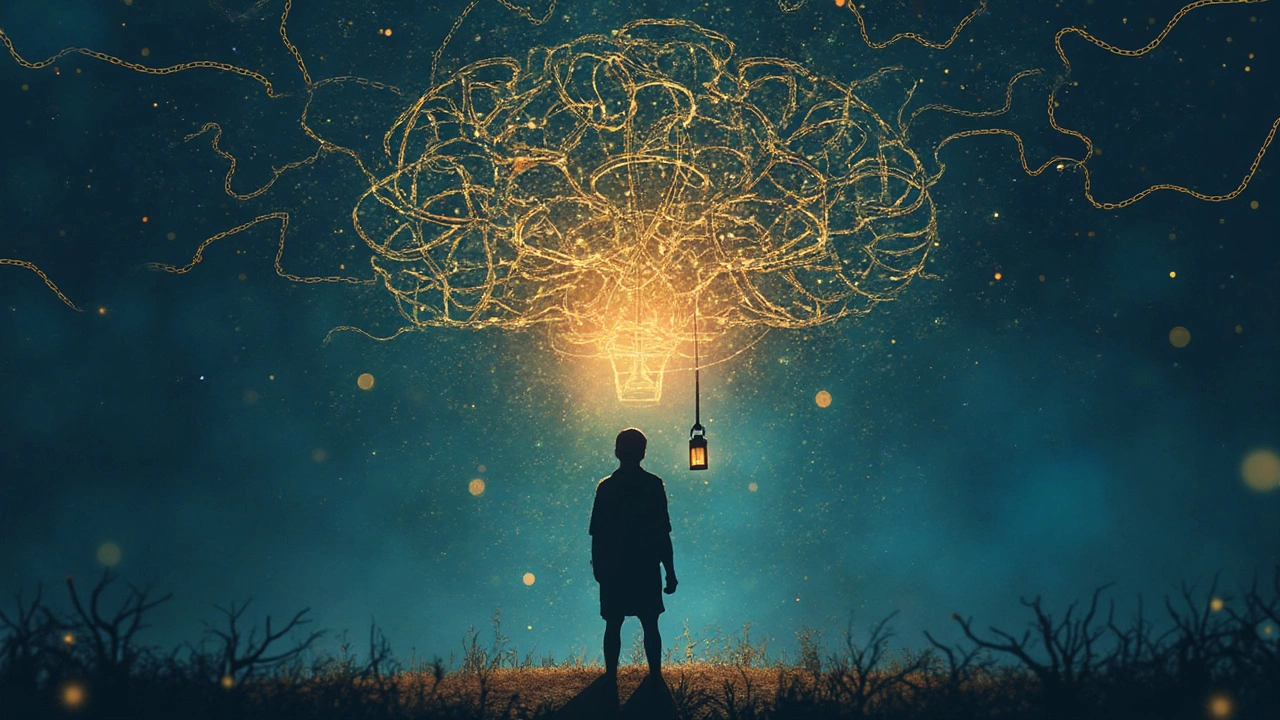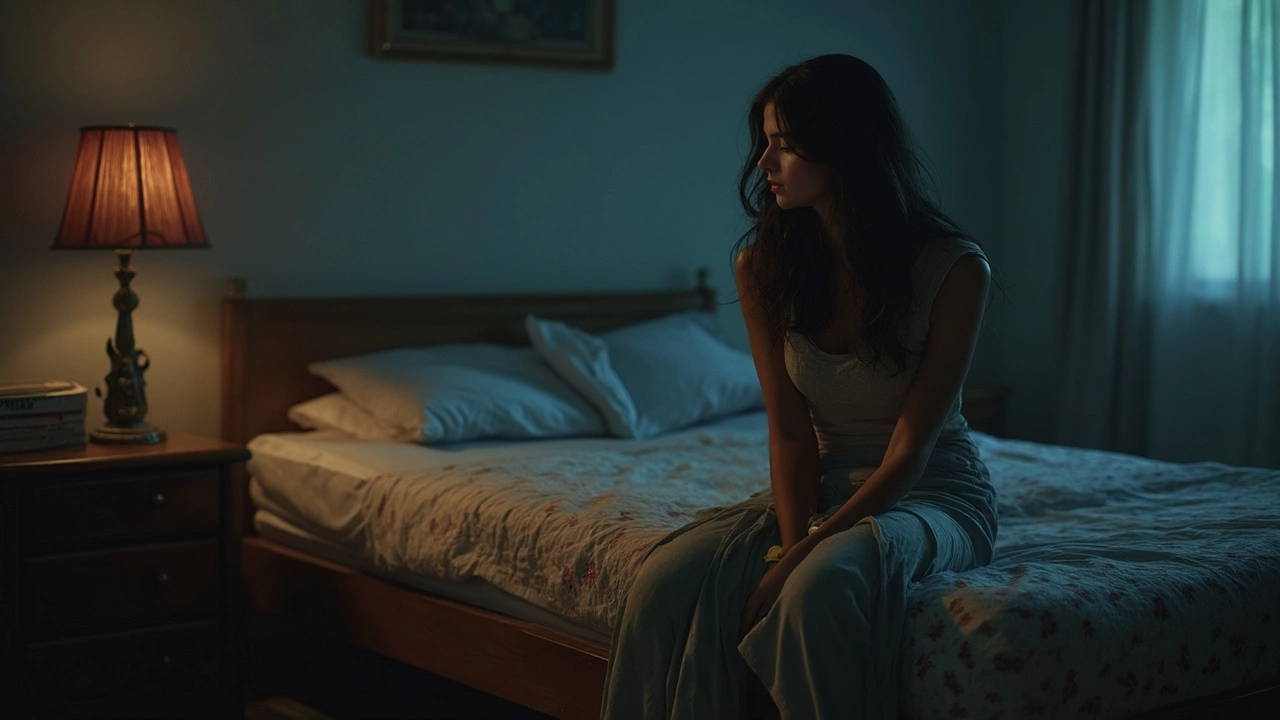Mental illness can mess with your sense of reality in ways that are genuinely scary. Imagine not being able to trust what you see, hear, or even think—now that’s something that rattles most people at the core. While depression and anxiety are tough, conditions like schizophrenia and psychosis often get called the most terrifying. These aren’t just about mood swings; they can flip your whole world upside down.
People who’ve lived through psychotic episodes often talk about feeling trapped in a waking nightmare. Hearing voices, feeling watched, being convinced something terrible is about to happen—it’s not just unnerving, it’s exhausting. Even family members can feel helpless simply watching it unfold.
But here’s the wild part: with the right help, people can—and do—get better. Therapy, medication, and support work wonders for a lot of folks. There’s no one-size-fits-all answer, but you don’t have to go through it alone. Stick around as we break down why these illnesses shake people up more than any other, real ways to help, and how understanding them actually helps shrink the fear.
- What Makes a Mental Illness 'Terrifying'?
- Schizophrenia: Living With Voices and Paranoia
- Psychosis: When Reality Breaks Down
- How to Cope: Support and Therapy That Matter
- Facing the Fear: Busting Myths and Finding Hope
What Makes a Mental Illness 'Terrifying'?
So what really makes a mental illness more terrifying than others? It usually comes down to how much it messes with someone’s grip on reality, independence, and safety. When people lose control over their thoughts, senses, or behaviors, the fear goes way beyond just sadness or worry—it hits the deepest nerves.
One of the big things is unpredictability. For example, psychotic disorders or schizophrenia might cause someone to suddenly see things that aren’t there or believe everyone’s out to get them. This level of unpredictability not only scares the person but also their friends and family, who may feel unprepared to help.
Let’s look at why some mental illnesses feel scarier than the rest:
- Mental illness with psychosis often brings hallucinations or delusions, which means your senses or beliefs can turn against you.
- Loss of self—people may feel like strangers in their own body or mind.
- Social isolation is huge; fear of being judged or abandoned makes everything heavier.
- Stigma keeps many folks from reaching out, so desperation grows in silence.
Here’s a quick snapshot of how common these terrifying symptoms are in some mental illnesses:
| Symptom | Common in Schizophrenia (%) | Common in Bipolar Disorder (%) |
|---|---|---|
| Hallucinations | 70-80 | 15-25 |
| Delusions | 80-90 | 30-40 |
| Disorganized Thinking | 80 | 20 |
It’s easy to imagine why someone facing those odds would feel terrified. And it’s not just the illness itself, but also the reactions from others, that can make everything feel worse. That’s why understanding these conditions deeply is one of the best tools for shrinking the fear around them.
Schizophrenia: Living With Voices and Paranoia
Schizophrenia knocks people off balance like almost no other mental illness. It's not just being a little confused or forgetful. Imagine hearing voices nobody else hears telling you scary things, or feeling sure someone’s spying on you when it’s not true. These aren’t daydreams—this can be your messy, everyday reality.
About 1% of people around the world deal with schizophrenia. That sounds like a small number, but with billions of people on the planet, it adds up to millions living with the ups and downs of this condition. For most, the symptoms (like delusions and hallucinations) show up in late teens or early adulthood, often out of nowhere. This can turn school, work, and relationships upside down fast.
Check out these key facts to get the bigger picture:
| Fact | Detail |
|---|---|
| Typical Age of Onset | Late teens to early 30s |
| Worldwide Prevalence | About 1 in 100 people |
| Common Symptoms | Hallucinations, delusions, disorganized thinking |
| Treatment Options | Medication, therapy, social support |
One of the most mind-bending things about schizophrenia is hearing voices. Picture being told you’re worthless or in danger by a voice no one else can hear. Many people with schizophrenia admit the voices feel so real, it’s basically impossible to ignore or shut them out. Hallucinations aren’t always voices—they can be sights, smells, or even physical sensations that don’t add up.
Then there’s paranoia: the deep, gut-level belief that you’re being watched, laughed at, or targeted. It gets in the way of normal life—making friendships feel like risks, and every phone call or email seem suspicious. Psychiatrists often see people who haven’t left home for weeks because the fear just doesn’t let up.
Living with schizophrenia is tough, but there’s more hope today than ever before. Antipsychotic medications help a lot of people tone down the voices and paranoia. Therapy—especially cognitive behavioral therapy (CBT)—can help folks figure out what’s true and what’s not. Support groups or community programs give people a safety net.
- Focus on getting a proper diagnosis early. It makes a huge difference in recovery.
- If someone you know hears voices, listen without judging or panicking. Simple support can go a long way.
- Don’t ignore the value of daily routines—regular sleep, meals, and a little exercise can really help steady things.
Even though schizophrenia is a tough ride, people do build good lives by finding the right combo of supports. The scariest part is often not knowing what’s real and what’s not—but with the right tools, things can get way more manageable.

Psychosis: When Reality Breaks Down
When someone experiences psychosis, it’s like their brain has swapped out reality for something that just doesn’t line up with what’s actually happening. This isn’t just feeling down or anxious—it’s about losing touch with what’s real. Hallucinations (like hearing voices or seeing things that aren’t there) and delusions (believing things that just don’t make sense to the people around you) are the main signs.
The numbers paint a picture: experts say about 3 in every 100 people will have at least one psychotic episode in their lives. Most often, it starts between ages 18 and 30. So, this can hit when you’re supposed to be sorting out your life, your career, everything.
| Fact | Details |
|---|---|
| First Episode Usually Happens | Between ages 18–30 |
| Prevalence | About 3% lifetime risk |
| Most Common Symptoms | Hallucinations, delusions, disorganized thinking |
Why does psychosis feel so terrifying? It yanks away your trust—not just in those around you, but in your own brain. Hearing a voice tell you to do something, or being absolutely certain the television is sending you secret messages, rattles your sense of self. One person described it like this:
“It was like I woke up in a movie where the plot made no sense, but everyone else was acting like it was totally normal.” — testimonial featured by the Royal College of Psychiatrists
And it’s not just about hallucinations. Some folks experience what’s called "thought disorder," when keeping up with conversations or even getting your thoughts in order gets really hard. Others might feel super suspicious, worried that people are out to get them. When friends and family don’t get it, that isolation hits hard.
If you or someone you know is dealing with symptoms like these, it’s smart to keep a few things in mind:
- Psychosis is treatable—people can recover with the right mix of meds and therapy.
- Getting help early makes a huge difference, especially within the first year.
- Stress, drugs, and lack of sleep can trigger or worsen episodes, so staying steady with routines helps a lot.
The real danger comes from ignoring the signs or feeling too ashamed to ask for support. Modern treatments really work; you don’t have to tough it out alone. Understanding psychosis doesn’t make it less scary right away, but it’s the first step to pulling reality back into focus.
How to Cope: Support and Therapy That Matter
Dealing with the mental illness that scares people the most—like schizophrenia or a psychotic episode—is tough, but there’s hope. The right type of support genuinely changes lives. The goal is to give the brain some space from all the chaos it’s facing.
The first step? Don’t wait. Early treatment helps the brain heal better and faster. Doctors recommend reaching out as soon as symptoms like hearing voices, paranoia, or severe confusion show up. About 80% of people with schizophrenia or psychosis see improvement when they get proper medical care within the first year.
- Medication: Antipsychotic meds stabilize the mind and make symptoms less intense. It may take several tries to find the right one, but it can change everything.
- Counseling and Therapy: Talking to a therapist trained in psychosis or schizophrenia helps people understand what’s happening, work through fears, and learn practical coping tricks.
- Family Support: Family therapy or support groups teach relatives what’s really going on, and how to avoid burnout or feeling helpless. Everyone in the house benefits.
- Peer Support: Speaking with others who’ve ‘been there, done that’ cuts down on shame and fear. Knowing you’re not alone makes a massive difference.
- Lifestyle Tweaks: Eating on time, getting some exercise, and cutting back on drugs and alcohol all actually help the brain heal.
Here’s how different supports help in real life:
| Type | How It Helps | Success Rate |
|---|---|---|
| Medication | Reduces hallucinations, delusions | ~70% report big improvement |
| Therapy | Manages stress, teaches coping skills | 60-75% have less severe symptoms |
| Family Support | Reduces relapse, improves mood | 50% see fewer hospital visits |
| Peer Groups | Increases hope, cuts isolation | 60% feel less alone |
The bottom line: real recovery is totally possible when people get support early, stick with treatment, and don’t try to tackle this stuff alone. If you or someone you know is struggling, try one small step at a time—sometimes that first step is just asking for help.

Facing the Fear: Busting Myths and Finding Hope
People throw around a lot of myths about schizophrenia and psychosis. A big one? The idea that folks with these conditions are always violent or dangerous. That's just not true. According to a review from the American Psychiatric Association, people with schizophrenia are actually more likely to be victims of violence than to cause harm.
Here's something else that needs busting: "Once you have schizophrenia or a psychotic episode, you'll never get better." Not true either. Around one-third of people with schizophrenia have long periods of full recovery. Many more learn to manage symptoms with therapy, support, and sometimes meds. Progress might not be overnight, but it happens.
“Recovery is not only possible, it happens every day for people living with mental illness.” – National Alliance on Mental Illness (NAMI)
Families and friends often get scared because of what they've seen in movies or on the news. Real life isn't a horror film, though. Learning about these illnesses goes a long way toward shrinking the fear. Support groups, both online and local, make a huge difference. People share what works, what doesn't, and keep each other going on the rough days.
Check out this data that shows folks really can get better:
| Outcome | Percentage of People |
|---|---|
| Full Recovery or Marked Improvement | Up to 70% |
| Ongoing Moderate Symptoms | About 20% |
| Severe Disability or Chronic Symptoms | Roughly 10% |
If you're helping someone with psychosis or schizophrenia, there are some simple steps you can follow:
- Get educated – trusted sites like NAMI and Mind have great info.
- Listen without judging. Sometimes folks need you to just hear them out.
- Encourage professional help. Therapy and medication make a world of difference for many people.
- Help with everyday stuff, like routines, meals, or just hanging out. Normalcy matters.
The best hope? People aren’t alone in this. With understanding, real support, and action, that fear starts losing its grip fast.
